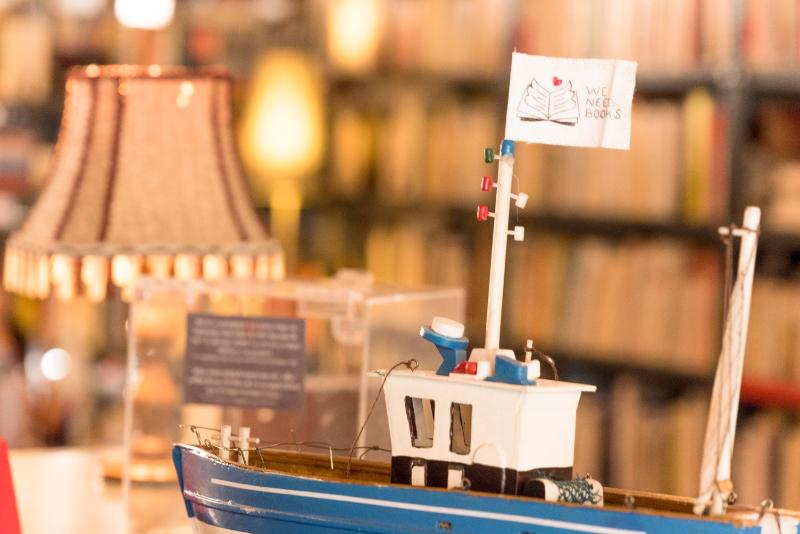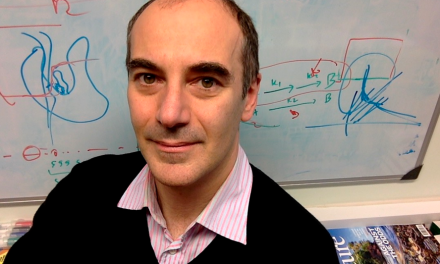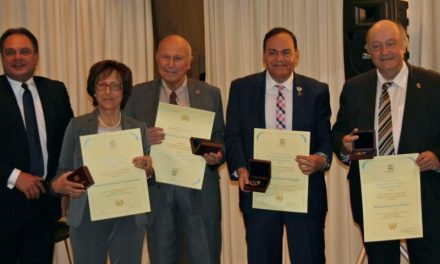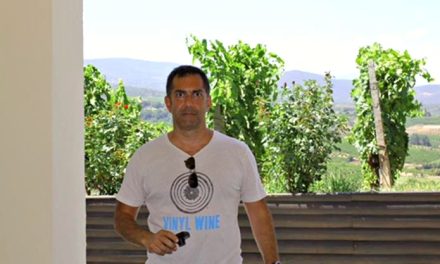We Need Books is an NGO that functions as a library and, more broadly, a multicultural space in Kypseli, a vibrant and culturally diverse neighbourhood in the centre of Athens. The library features 14,000 books in over 30 languages and at least 6 alphabets, and also includes a children’s library. Its aim is to treat all languages equally, and to provide a meaningful service addressed to everyone.
As stated in the vision behind the creation of the library, cultural and linguistic diversity can contribute to innovation, creativity and peaceful coexistence. Multicultural books and spaces also strengthen the Greek community by making it more inclusive. They also help immigrants and refugees to to familiarise themselves with Western lifestyle, thus promoting mutual understanding.
In the words of Emma Raibaut, the French librarian of We Need Books:
“The library offers a certain “empowerment” to its users, because it is an open and free space where one can evolve autonomously, but also because by valuing books, one values languages and their speakers, as well as their place in Greece and in Athens.”
Our sister publication, GrèceHebdo, interviewed with the founder of We Need Books, Ioanna Nissiriou, about all that the unique library does, the challenges the project faces as well as the impact the library has on the community.
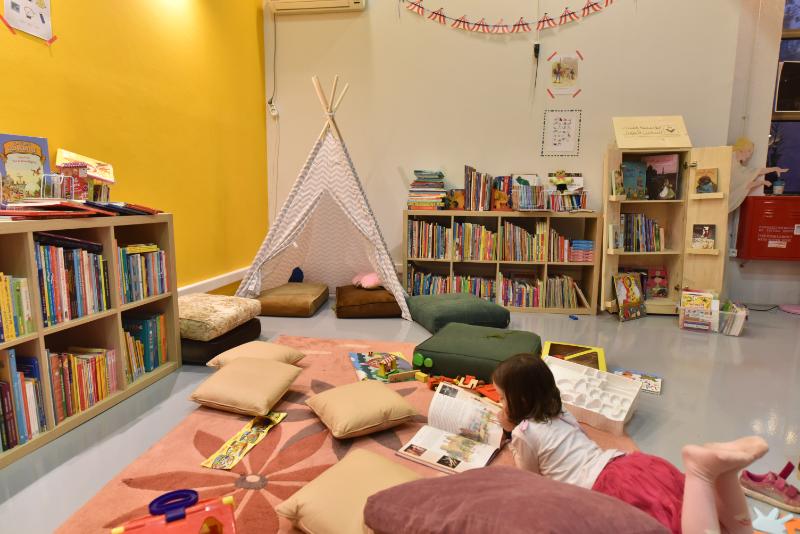 Do the users of the library follow a particular profile or are do they come from many different backgrounds?
Do the users of the library follow a particular profile or are do they come from many different backgrounds?
The We Need Books library was created to bring together, through a common love of books and the need for personal interaction, people who live in the city of Athens but who would otherwise never meet. It is the only library in the Kypseli district and the only multilingual library in the capital.
The library is there to serve the community, as is the case with modern public libraries in Europe and the USA. It is therefore a sign of its success that it does not attract users of a specific profile, given that neither the residents of Kypseli, nor the citizens of Athens in general, fall into a particular category. We welcome children who come by after school, neighbours who come to talk about their news, people who come here to work on their laptop, read in the garden, borrow books, attend our activities and language courses or simply enjoy a complimentary cup of coffee in a multicultural environment. Our visitors are men and women from a wide range of backgrounds and origins. However, from the moment they enter the premises, all visitors enjoy the same level of respect and have equal access to all our services. And it is precisely these discussions that give rise to our initiatives: our remedial courses were a result of the anxiety of the parents whose children missed most of the distance learning courses last year; our workshops are owed to the lack of creative activities for children in the neighbourhood; our Greek language courses are prompted by the need for social integration and the improvement of the living conditions of immigrants and refugees; and the multicultural programmes for children and adults originate from our own lack of knowledge about the others. Our library is proof that people from different backgrounds can coexist harmoniously and creatively.
Has the neighbourhood become aware of its own multicultural character? Can you see a transformative impact of the project on the community?
The international press recently declared Kypseli one of the most multicultural districts in Europe. What was for years a source of embarrassment for the older residents of the area is now a magnet for tourists, artists and start-ups. Yes, the residents are aware that the character of their district is multicultural. The older residents have learned to live with the newcomers. Sunday gospel services and ethical grocery shops are now part of their lives. Those who have children in school are well aware that the demographic profile of central Athens has changed. Society is changing, evolving and expanding. Our initiative confirms and highlights the multiculturalism of our city and promotes it as something positive, beautiful and promising. Yet, even if people from different backgrounds share the same buildings, the same buses and use the same public services, they do not form relationships with each other. There is still a shyness that builds invisible walls between citizens. The library is a meeting place and offers a jovial and friendly atmosphere, which encourages interaction between people who, if they were in another place – say at the baker’s or at the parents’ association meeting – would probably not exchange a word. In this sense, the library does not transform but it helps or, perhaps, accelerates, in so far as possible, an anticipated social evolution.
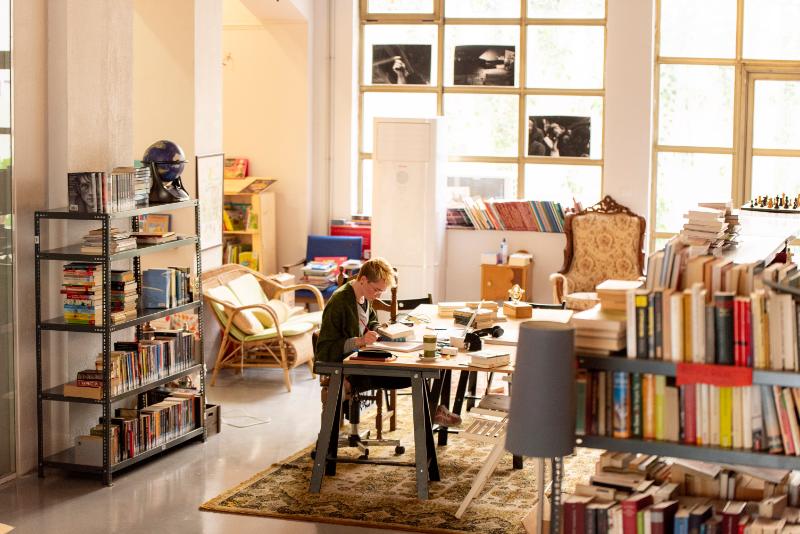 Emma Raibaut, librarian of We Need Books
Emma Raibaut, librarian of We Need Books
What are the greatest challenges you face? Could you share any lessons you have learnt or examples of good practice from your experience so far?
All over the world, public libraries are state funded, as their social role is widely recognised. Many of them are underfunded; but if this public funding – which is combined with donations from institutions etc. – were to disappear, public libraries would cease to exist, due to the high cost of operating them and to the fact that they do not charge for their services so as not to exclude large social groups. We Need Books is the only library of its kind in Athens, and perhaps in the whole country, and one of the few in Europe and the United States that serves the community even though it is not public, in the sense that its operation is not funded by the state. Yet the public character is written into the DNA of our library in that it is there to serve society.
The biggest challenge is covering operating costs, i.e. rent and bills, given that the assessment of applications by the institutions is carried out in such a way that the costs of non-profit organisations are excluded from eligible expenses.
A good practice is that we talk directly with the people and we design our activities together so that they correspond to the real needs of the people in the neighbourhood. Also worth mentioning is the quality of our relations with other organisations. We are open to listen, share, cooperate and help where possible. We are a small and efficient team; we make quick decisions and, in addition, we are extremely careful with the organisation’s financial management, as we struggle to find funds on our own.
But most importantly, I would say, we dare to do things that have never been done in Greece before, from the very creation of the library to the CHARMMS (Challenging Refugee and Migrant Media Stereotypes) programme that we are implementing and which is funded by the financial mechanism of the European Economic Area (EEA) with the aim of raising awareness and mobilising professional or amateur content creators on diversity issues.
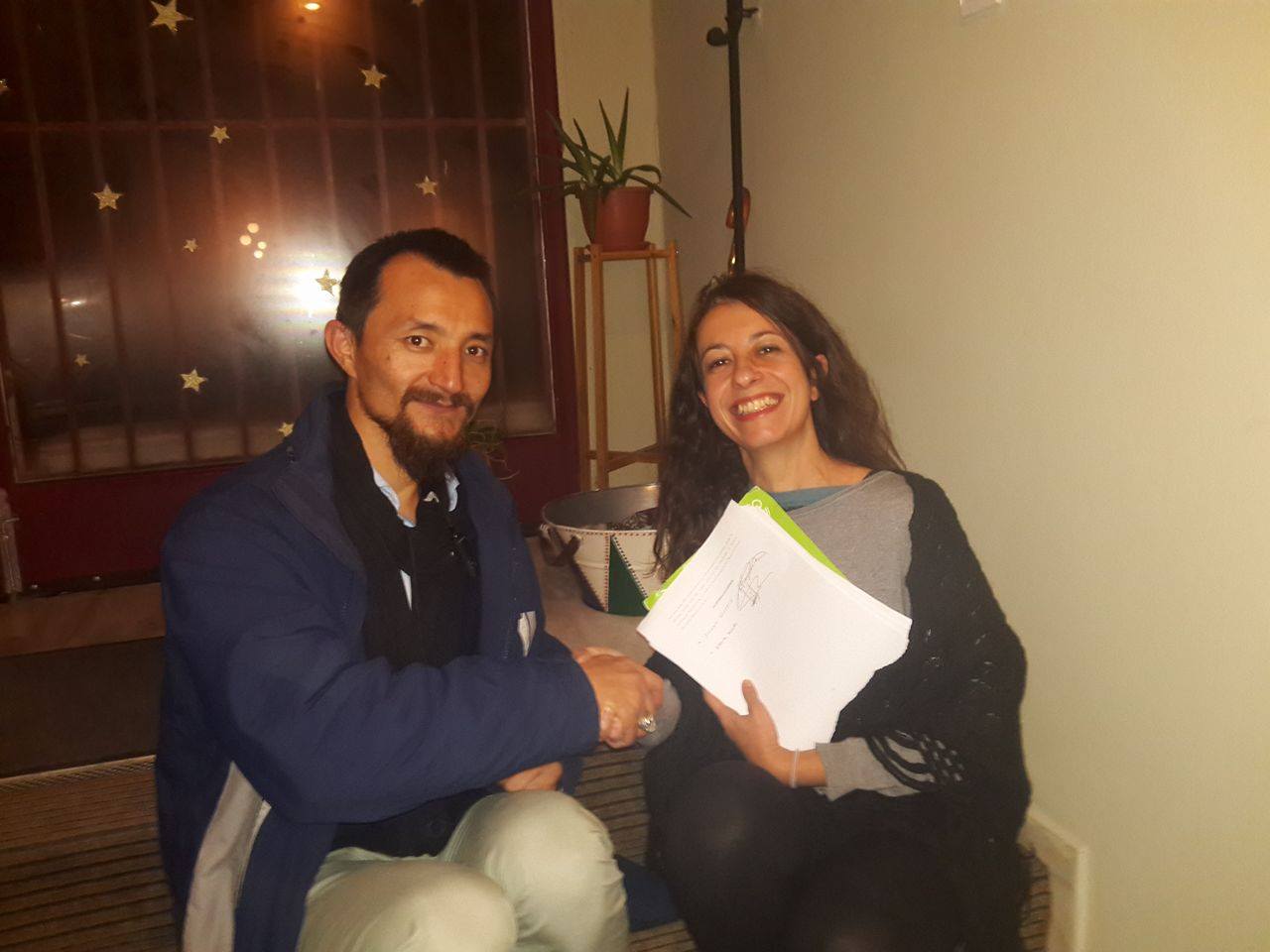 Nadir Noori and Ioanna Nissiriou, founders of We Need Books
Nadir Noori and Ioanna Nissiriou, founders of We Need Books
How can one get involved in the project?
Our library has recently started to offer a book lending service. About 17% of the books are already available for loan and many more are added to our catalogues every week. You can become a member of the library to borrow books and support its work, and you can also participate as a volunteer in cataloguing, teaching a language, implementing an action, etc. In addition, you can participate in social network actions, such as our workshops on stereotypes. In cooperation with us, you can offer books together and help us to enrich our collection on human rights and climate change. And above all, you can visit the library and then talk about it in your social circle to raise awareness about Kypseli as the home of the multilingual library of Athens, a beautiful and inclusive place that always has something to offer to its visitors.
Read also via Greek News Agenda: HELIOS project for the integration of refugees in Greece and the EU; Rethinking Greece | Alexander Kitroeff: “Greek Diaspora has affected the history of host countries around the world”
Translated into English by N.M.

